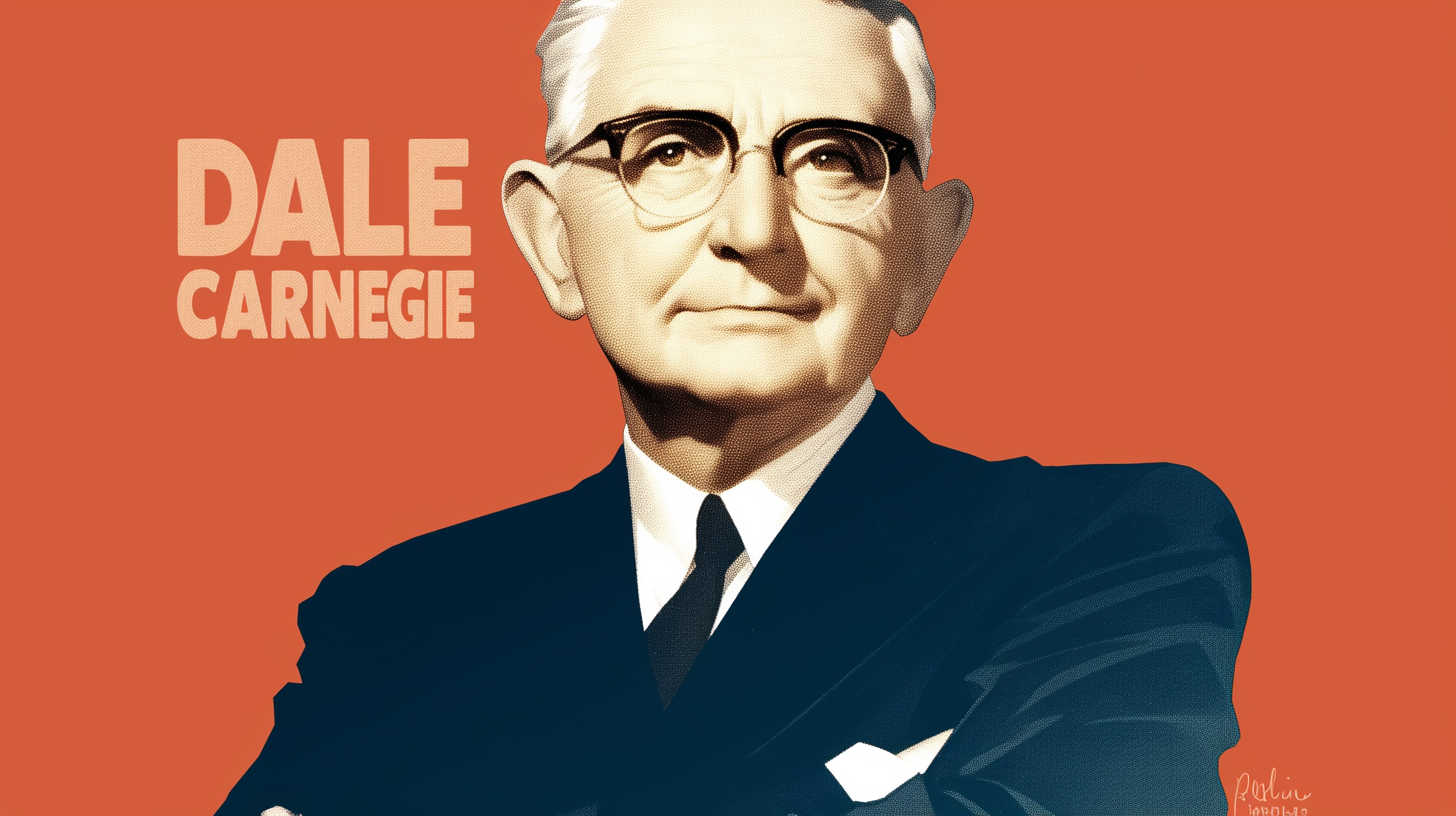· 7 min read
The Book That Launched The Self-Help Industry
The highest paid skill in business today is not technical but social--even more so in the age of social media and AI.

Dear Reader:
If you ever find yourself in the ‘Self-Help’ section in your local bookstore, take a step back to look at all the titles. And keep this in mind while you observe: Dale Carnegie created this industry with his classic and timeless “How To Win Friends and Influence People”.
In fact, when the book was first published in 1936, there was no ‘Self-Help’ section at all. More impressively, the book still sells more copies per year than the books written in more years.
Any book with 30,000,000 copies sold (and counting) must contain some deep and profound wisdom. With a track record of improving the lives of countless men and women, there is little doubt as to the effectiveness of the advice written within these pages.
Why?
Because the ideas and stories in the book are timeless.
However, while reading this book you come across stories about Abraham Lincoln and feel it is ‘dated’—you would be correct from a purely technological point of view. There was no social media back. People did not wake up to read @TheRealAbeLincoln tweeting about the state of the Civil War.
But from a human relations point of view, every story dealing with humans has something valuable to teach—a kernel of truth.
Reading (or listening) this book feels spending time with a trusted friend who has lots of life-transforming and powerful stories to share. Tales of real people who changed their lives from nervous wrecks to leaders of industries.
Dale Carnegie is an inspiring example of a man who found his passion in helping others.
And what makes this an “action-book” is how Dale Carnegie encapsulates the wisdom into simple, memorable core principles at the end of each chapter.
Why Was This Book Written?
Back in the 1910’s, The University of Chicago and the United Y.M.C.A. Schools conducted a 2 year survey that cost $25,000. They wanted to know what adults wanted to study.
The most popular topic was health. And the second?
Human relations—how to deal with people.
Searching for a suitable textbook or course, the committee was unable to find anything worthwhile. There was no book to help people learn essential social skills in the world of business, sales, and leadership.
Enter Dale Carnegie.
Since no such book existed, I have tried to write one for use in my own courses.
The book came about as a result of his public speaking courses at the Y.M.C.A. It was essentially a labratory of adults learning to overcome their fear of speaking in front of a crowd.
You see, Dale Carnegie understood that what people wanted in public speaking wasn’t a course on tone, rhetoric or the mechanics of speech—what they wanted was to present their ideas in a board meeting, to sell their products or services to strangers, to live a more harmonious life with their family and friends.
His course became a sensation. Hundreds of thousands of graduates have gone on to lead successful lives as a result of developing their skills in human relations and public speaking.
Here is a short story to illustrate the power of the principles from this book:
Warrent Buffet, before he became the famed investor and billionare, had a problem with public speaking.
During his time attending the Colombia Business School, he saw an ad in the newspaper for the Dale Carnegie Course. He went to the office, signed-up, gave them a check and left.
But his fear of public speaking prevented him from following-through with the course, so he cancelled the check.
After he graduated from Colombia, he went back to Omaha and got a job as a salesman of securities. But the fear of public speaking still lingered. He knew that to be successful as a salesman, he had to deal with it head-on.
So when he saw the ad for the Dale Carnegie public speaking course again in the newpaper, he went back to sign-up. But this time he gave them cash—thinking that this will force him to attend.
In his class were 30 other students who had the same problem. They met once per week for a dozen weeks. They had to prepare speeches and learnt psychological tricks for overcoming their fear of speaking in public.
Once he got his graduation certificate from the course, he went to the University of Omaha to teach so that he wouldn’t lapse back into a shell. He had this to say about the profound difference the course made in his life:
I don’t have my diploma from the University of Nebraska hanging on my office wall, and I don’t have my diploma from Columbia up there either — but I do have my Dale Carnegie graduation certificate proudly displayed. That $100 course gave me the most important degree I have. It’s certainly had the biggest impact in terms of my subsequent success.
12 Things This Book Will Help You Achieve
A good summary of the book comes from the man himself in the opening page of the book.
Get out of a mental rut, think new thoughts, acquire new visions, discover new ambitions.
Make friends quickly and easily.
Increase your popularity.
Win people to your way of thinking.
Increase your influence, your prestige, your ability to get things done.
Win new clients, new customers
Increase your earning power.
Make you a better salesman, a better executive.
Handle complaints, avoid arguments, keep your human contacts smooth and pleasant.
Become a better speaker, a more entertaining conversationalist.
Make the principles of psychology easy for you to apply in your daily contacts.
Arouse enthusiasm among your associates.
The Highest Paid Skill In The World
John D. Rockefeller, one of the richest men in history, once said:
The ability to deal with people is as purchasable a commodity as sugar or coffee. And I will pay more for that ability than for any other under the sun.
It is not surprising that ‘Communication’ skills consistently ranks amongst the top 10 skills for leadership and business professionals.
While technical skills can get you the job, it is the ability to get along with your co-workers and deal with conflict that determines your ability to move up the ladder.
But lately, there has been an unsettling trend with the rise of social media and AI.
The Internet has removed the need to communicate face-to-face. With AI and prompt engineering, you don’t even need to write your own emails or messages anymore.
But are they effective?
Do they move your audience emotionally?
If you have tried using AI for writing, you will notice within the first few attempts that the sentences seem generic. There is no personality.
So while AI is great for tasks like data analysis or coding—emotion and personal stories are beyond its reach.
There is only one you, and only you can tell your story with your unique voice.
In other words—AI can’t replace you.
In this age of social media and AI, developing your skills in human relations is more important than ever.
If you already have an Amazon account, the paid links below are for the paperback version. Plus you can read the entire first chapter of the book in the product description to see if this is for you.
And if don’t feel like the book lives up to its reputation, you can return the book within 30 days and you get your money back—no hassle, no fuss.
Dedicated to seeing you prosper, 
P.S. If you prefer to listen to these time-tested principles, wisdom and advice—the Audible version of the book is the way to go. It’s great when you’re doing chores, driving, working on a project, or right before bed.
Download a copy from the paid links below:
And by the way, if you are new to Aduible, you can get a FREE copy by signing up. The first two months are free and you get 1 credit per month to pick any title you want.





